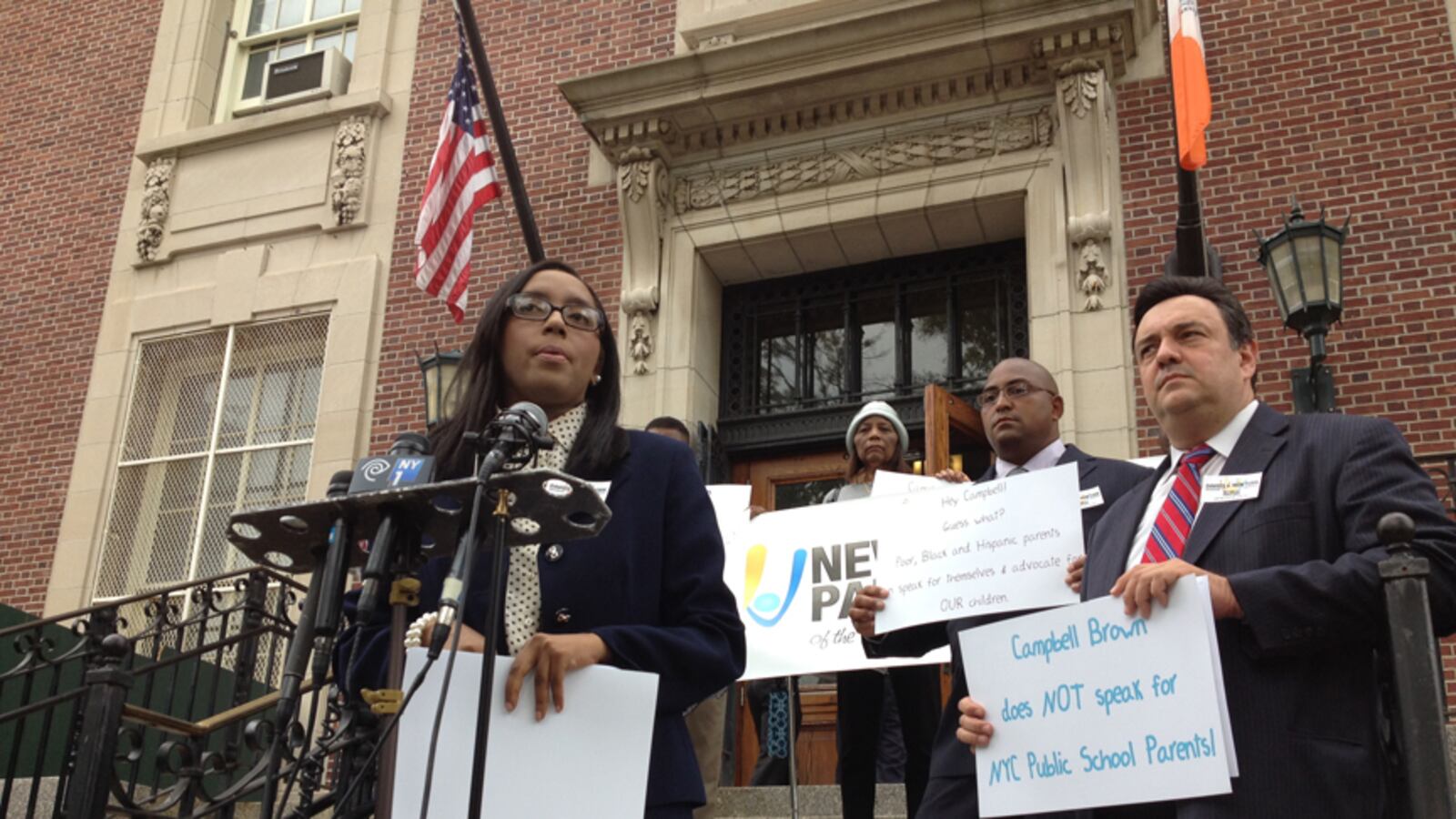New York’s teachers unions are hailing a decision Monday by California’s top court to uphold that state’s teacher tenure laws, saying it bolsters their case against a legal challenge to New York’s teacher protections.
While the tenure laws differ in each state, the lawsuits targeting them rely on similar logic, said Richard Casagrande, general counsel for the New York State teachers union, one of several parties asking an appeals court to throw out the suit.
“The basic theory is the same: that somehow giving a teacher certain job protections interferes with a child’s right to a sound, basic education,” he said, adding that he expected that argument to fail in New York as well.
But the New York plaintiffs said they did not believe the ruling would affect their case, since the suits used different arguments and targeted different laws. One of the forces behind the lawsuit, an advocacy group led by former news anchor Campbell Brown, added that the ruling makes its anti-tenure efforts “more important than ever.”
The Los Angeles lawsuit, known as Vergara v. California, claimed that teacher tenure and dismissal laws made incompetent teachers too hard to fire, and saddled needy students with the least effective educators.
In June 2014, a judge sided with the students who brought the suit and struck down those laws, but this year an appeals court overturned that decision. On Monday, the California Supreme Court decided 4-3 not to review the lower court’s ruling — a move that preserved the job protections and marked a major victory for the state’s teachers unions.
The Vergara suit’s initial victory inspired advocates in New York City, who filed similar lawsuits in July 2014.
The suits, which were eventually combined, made several claims: that New York teachers should have to wait longer than three years to earn tenure; that ineffective teachers are rarely fired because the process is so cumbersome; and that the state’s “last in, first out” law protects more senior teachers even when they are less effective than newer ones. The suits were brought by parents organized by Brown’s group, the Partnership for Educational Justice, and by Mona Davids, a public-school parent and president of the advocacy group New York City Parents Union.
After Vergara’s defeat on Monday, the group sent out a release saying the ruling “has no bearing on cases in other states,” and insisting that its legal claim is “entirely different” from the one that was rejected in California. (Brown’s group is also backing a similar lawsuit in Minnesota.)
Davids reiterated that point on Tuesday, saying that New York has a “completely different constitution and laws governing education here.”
But lawyers for the city and state teachers unions, which are defendants in the New York case along with the city and state education departments, said the other side was trying to have it both ways. They noted that the plaintiffs had cited the 2014 ruling in favor of Vergara in their legal filings.
“When they cite those cases for their benefit, they suffer when those cases are overturned,” said Adam Ross, the city teachers union’s general counsel. “Live by the sword, die by the sword.”
The New York defendants are now waiting to argue before an appeals court that the lawsuit should be tossed, after a Staten Island judge declined to dismiss the suit. They expect the court to set a date for oral arguments soon.
As the case has wound through court, state lawmakers have actually changed some of the disputed laws: They lengthened the period needed to earn tenure to four years, and altered the statewide teacher-evaluation system.
David Bloomfield, an education law and policy professor at the City University of New York Graduate Center and Brooklyn College, said those changes show that the legislature — not the courts — is the proper place to debate teacher job protections. He added that the New York plaintiffs, like those in California, would have a hard time in court proving that the tenure laws violate students’ rights.
“In my opinion, there’s little legal viability to their claim,” he said. “But it’s politically potent.”

